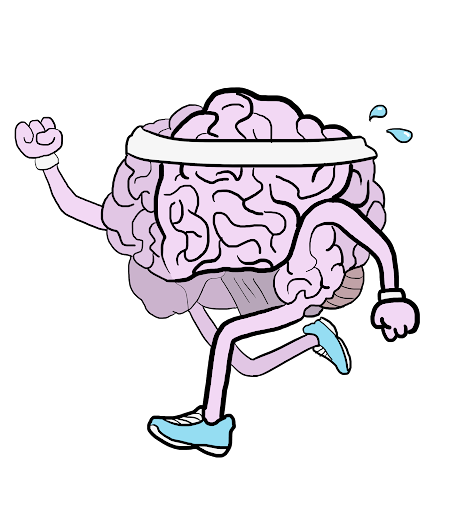Mind and Body
March, 2020
As we transition to the new decade, one thing hasn’t changed: New Year’s resolutions. Every year, people across the world make promises to better themselves the coming year, whether it be by performing one act of kindness each day, spending more time with family, or quitting an unhealthy habit. According to a 2019 article published by Statista, eating healthy and being more active were amongst the top three resolutions for the new year, and with good reason: exercise has more benefits than one might think.
We may hit the bench press to get ripped, the treadmill to enhance our endurance, or the yoga mat to improve our flexibility, but all of these activities yield the same beneficial result: they leave us feeling uplifted and rejuvenated afterwards. This is because physical health and mental health are oftentimes directly correlated. Unfortunately for me, I learned this the hard way.
I’ve consistently made promises to start exercising this year, but have always been unable to bring myself to start. I used to dance, and after graduating from my studio, the amount of physical exercise I got each week dropped drastically. Without practice and rehearsals to keep me busy, I spent most of my time afterschool each day at home in bed. Further, I had always received exercise plans from my instructors, who never taught me how to create my own.
And as my physical health declined, so did my emotional wellbeing. My mental health was suddenly deteriorating, yet I never considered exercise to be a solution. Regardless, I desperately craved a more productive way to spend my time, to replace the long hours spent scrolling through social media that were only exacerbating my daily struggles with my mental health.
Luckily I was able to look to my sister, an avid exerciser who improved her life by committing herself to working out. She had always promoted the benefits of exercising, describing how it helped boost her confidence when she was feeling insecure and calm herself down when she was anxious. With her back home, I discovered that her perspective on exercise holds a lot of truth: the more I worked out, the better I felt. After only a few workouts, I felt like I could suddenly tackle the world. I understood how it had improved my sister’s life.
We see the physical benefits of working out — larger biceps, six packs, slimmer waists — but rarely recognize how workouts make us feel emotionally. By improving our physical health, we advance our mental health as well. So the next time you feel stressed, try getting off your phone and doing ten jumping jacks or taking a five minute walk — it might just brighten your day.